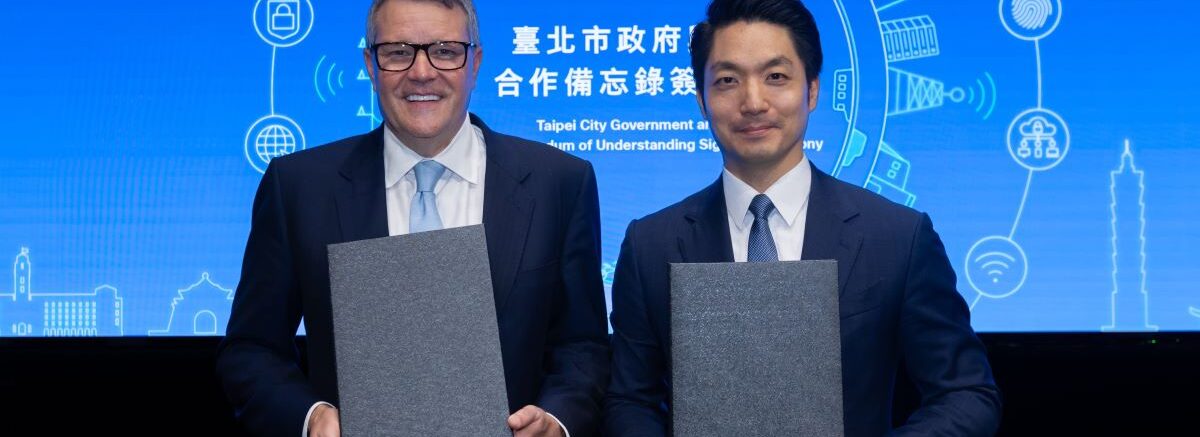As one of the world’s most rapidly digitizing places, Taiwan is deeply committed to innovation for its people. But to maintain its vibrant economic success story, cyber resilience is critical.
“Every connection, with the right security, becomes an opportunity”,” said Dr. Guy Diedrich, Cisco SVP and global innovation officer. “But a connection without the right security instantly becomes a vulnerability. And Taiwan knows this as well as anyone.”
Diedrich also oversees Cisco’s Country Digital Acceleration (CDA) program and its global Networking Academy skills-training program, both of which are integral to the latest iteration of a highly impactful partnership and suite of investment: Taiwan Digital Acceleration, or TDA 3.0.
This latest three-year effort — announced last month — brings together government, academia, and local industry with Cisco’s expertise in networking, AI, and, of course, security, with a planned Taiwan Cybersecurity Center. Building on the success of TDA 1.0 and TDA 2.0, it strives for innovative, secure, and sustainable solutions that will help transform Taiwan’s society and economy into the future.
In an address at the opening ceremony for TDA 3.0, the Taiwan Vice President Bi-khim Hsiao, summed up the importance of the partnership.
“As Taiwan becomes front and center in the global digitalization trend,” she said, “we are very grateful to Cisco’s long-time support and continuing partnership with government, academic and private sectors here in Taiwan.”
And whether through AI-driven smart-city transformations, sustainability, or security, Steven Lin, general manager of Cisco Taiwan, emphasized the multi-dimensional aspect of TDA 3.0.
“Cisco’s investment in Taiwan goes beyond technology,” he said. “We are committed to collaborating with the government and local entities to fuel technological advancement and drive digital transformation.”
For TDA 3.0, that includes implementing AI-powered systems to help modernize transportation and traffic management, as well as supporting Taiwan’s net-zero carbon emissions goal for 2050. In addition to smart-city and transportation initiatives, this will include advanced carbon monitoring to measure progress.
TDA 3.0 is also modernizing, digitizing, and protecting Taiwan’s ports.
“Ports are the lifeblood of economies like Taiwan’s,” Diedrich stressed. “If a port goes down, it impacts everything that feeds off of that port. Because once we have trucks, trains, and ocean shipping disrupted, the entire engine of commerce is slowed.”
A critical lens on security
Of course, none of those initiatives will succeed without security. Taiwan’s strategic importance as a global supplier of silicon chips makes it an especially attractive target for nation-state cyber operatives. So, a key component of TDA 3.0 is a new Taiwan Cybersecurity Center. Located in Taipei, it will combine cutting-edge research and innovation with skills training — to meet next-generation threats and train the workers who will counter them.
“It’s a cybersecurity center that will bring in the best of Cisco — including elements like Cisco’s Talos threat intelligence — and the best of Taiwan,” Diedrich said, “to create a single hub in which to innovate and protect for the future. Because their entire economy depends on security.”
Diedrich stresses the importance of skills training. CDA is partnering and driving transformation in more than 50 places in the world, and Networking Academy, which has trained more than 20 million students in 25 years, is part of every new CDA initiative.
“Networking Academy is involved in everything that we do now,” Diedrich explained, “because the skills component is critical. Innovation is happening so fast that we need to be developing the skills alongside of it in real time, in complete synchronicity with the innovation.”
This is especially important in security, where threats evolve constantly but 3 million security jobs remain unfilled globally. That includes Taiwan.
“Taiwan is like every other place on planet earth,” Diedrich continued. “They have a strong demand for talent; they just don’t have a big enough supply. So, we’re partnering with the government to train the next generation of cybersecurity technologists.”
On the innovation side, the Cybersecurity Center will spur the highest level of collaboration.
As Diedrich said, “it will ensure that government, industry, and academia are all working together to protect this territory with a very robust cyber security mission. They need to protect all that they’re establishing through their investments and not have to worry about it all being taken down by nation-state actors that want to do them harm.”
That spirit of cooperation and collaboration is a hallmark of Cisco’s commitment.
“Our presence and collective efforts are a testament to Cisco’s dedication to Taiwan’s digital advancement and socio-economic prosperity,” Cisco’s Steven Lin said. “We are here for the long haul, investing in Taiwan’s vibrant tech ecosystem and supporting its journey towards becoming a global digital leader.”
Vice President of Taiwan Bi-khim Hsiao concluded her talk with a similar message of what’s possible with continued investment, mutual commitment, and partnership.
“I believe that if everyone invests together,” she said, “Taiwan will continue to create new miracles in digital technology.”
